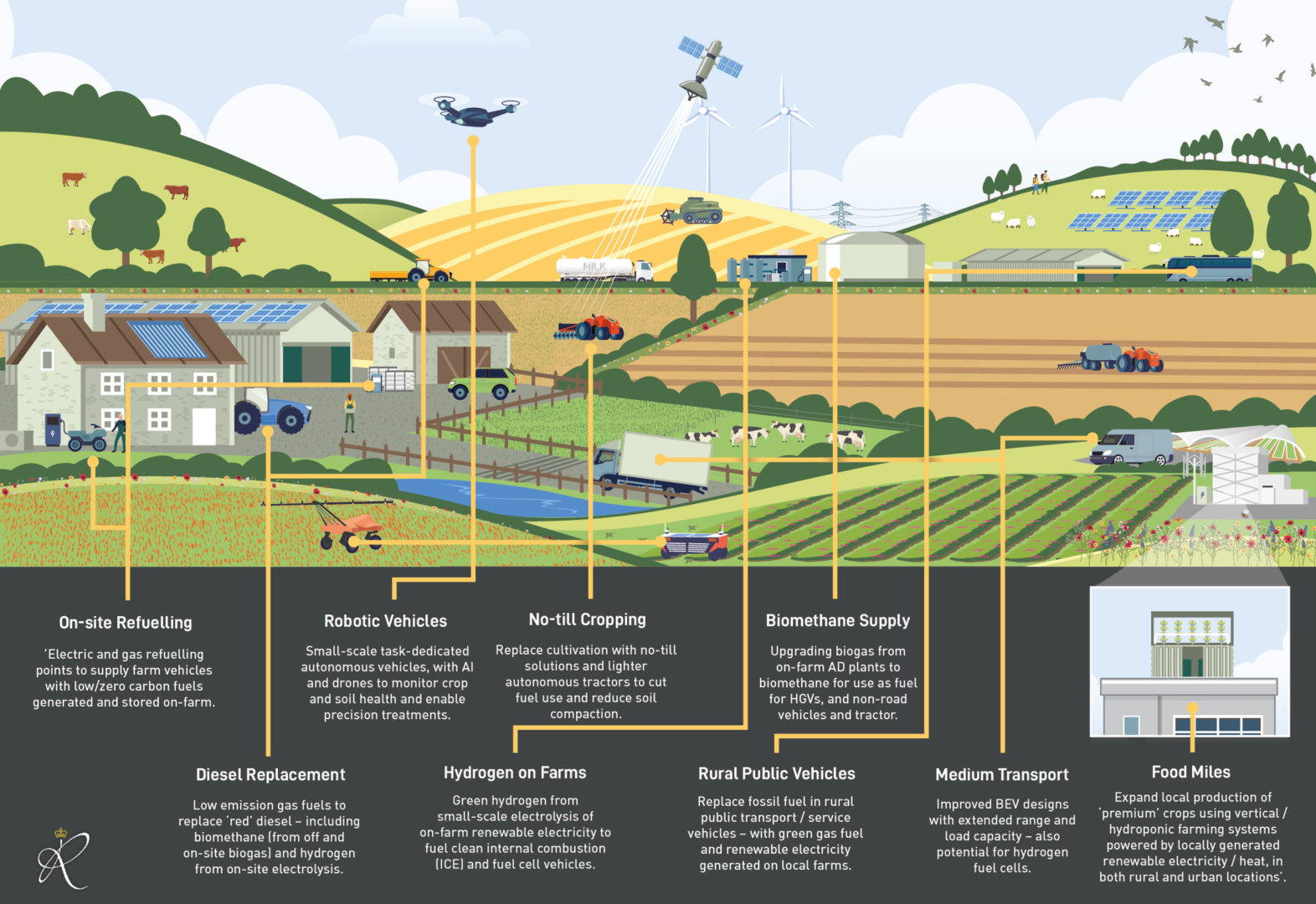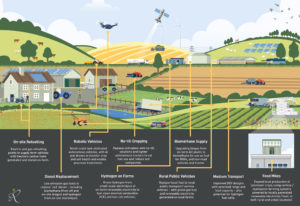
Farm vehicles of the future
Case Study
The Challenge
Climate change has major consequences for UK farmers and farm transport represents a significant component of the equation, dominated by investment in tractors and machinery. Dependence on use of diesel contributes to the overall greenhouse gas emissions from farming in the form of CO2 and particulate emissions.
The Development
The Royal Agricultural Society of England (RASE) commissioned Cenex to provide technical authorship of the ‘Agriculture vehicles & fuels’ section (chapter 5) and editorial advice on the paper.
Cenex looked at options for decarbonising the current farm vehicles and reviewed light weight and autonomous vehicles for the farm of the future that are ideal for low and no till agriculture that help improve soil health and keeps carbon locked in.
The Result
A Briefing Paper was released in November 2021 to coincide with COP26.
The main “Farm of the Future” report in Spring 2022 will inform farmers about future priorities and the technologies in place now and likely to emerge over the next decade that can lower emissions.

